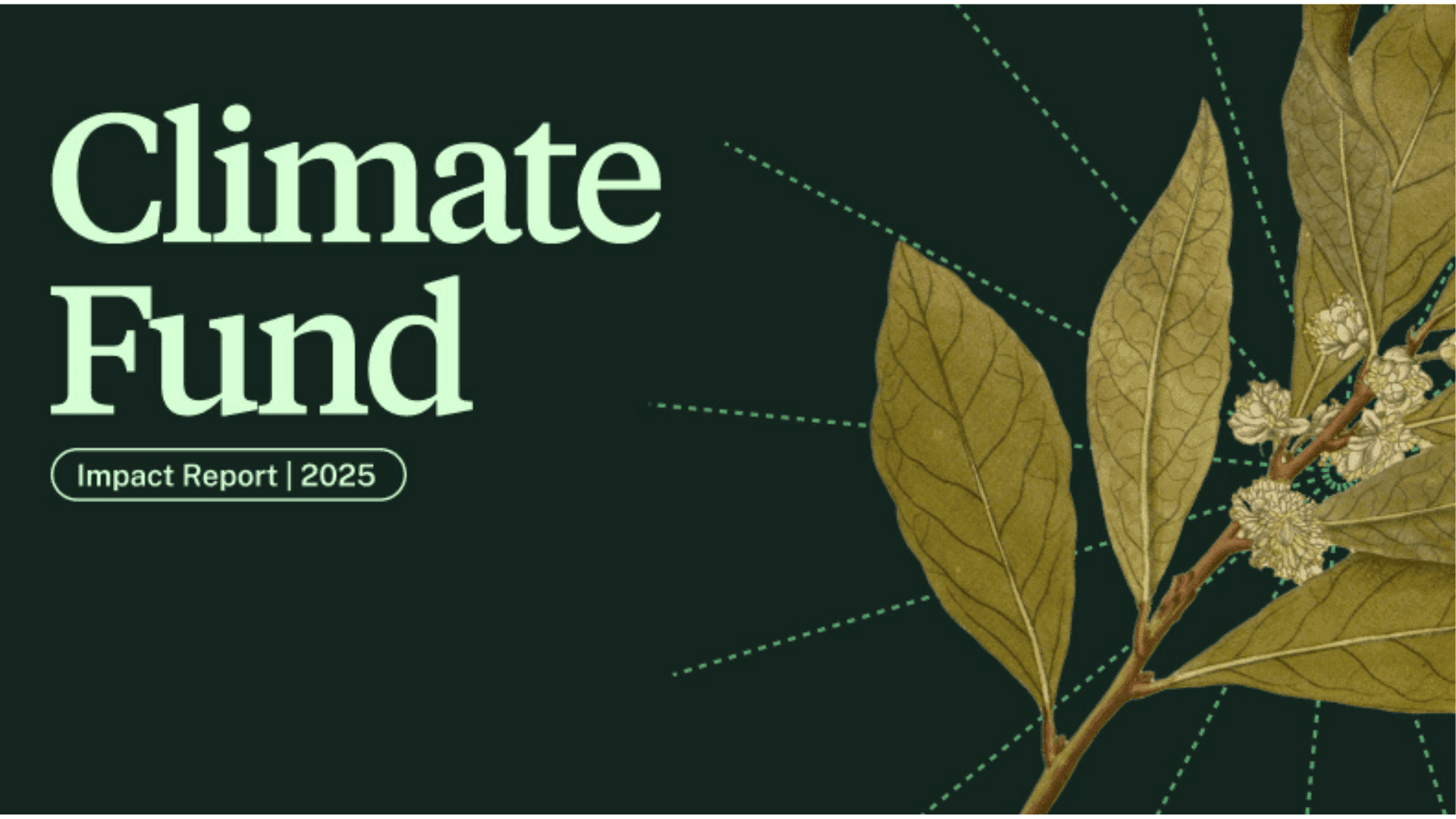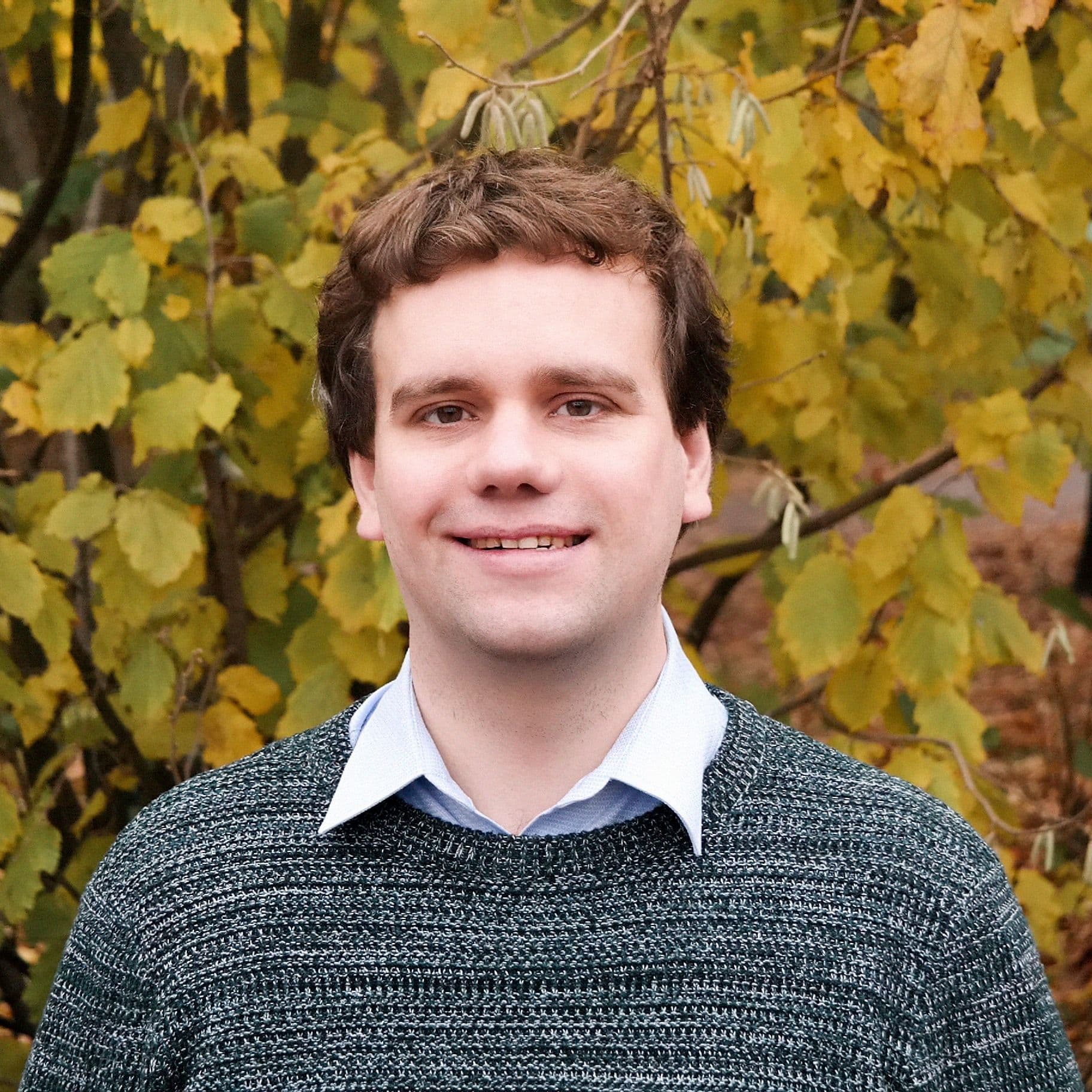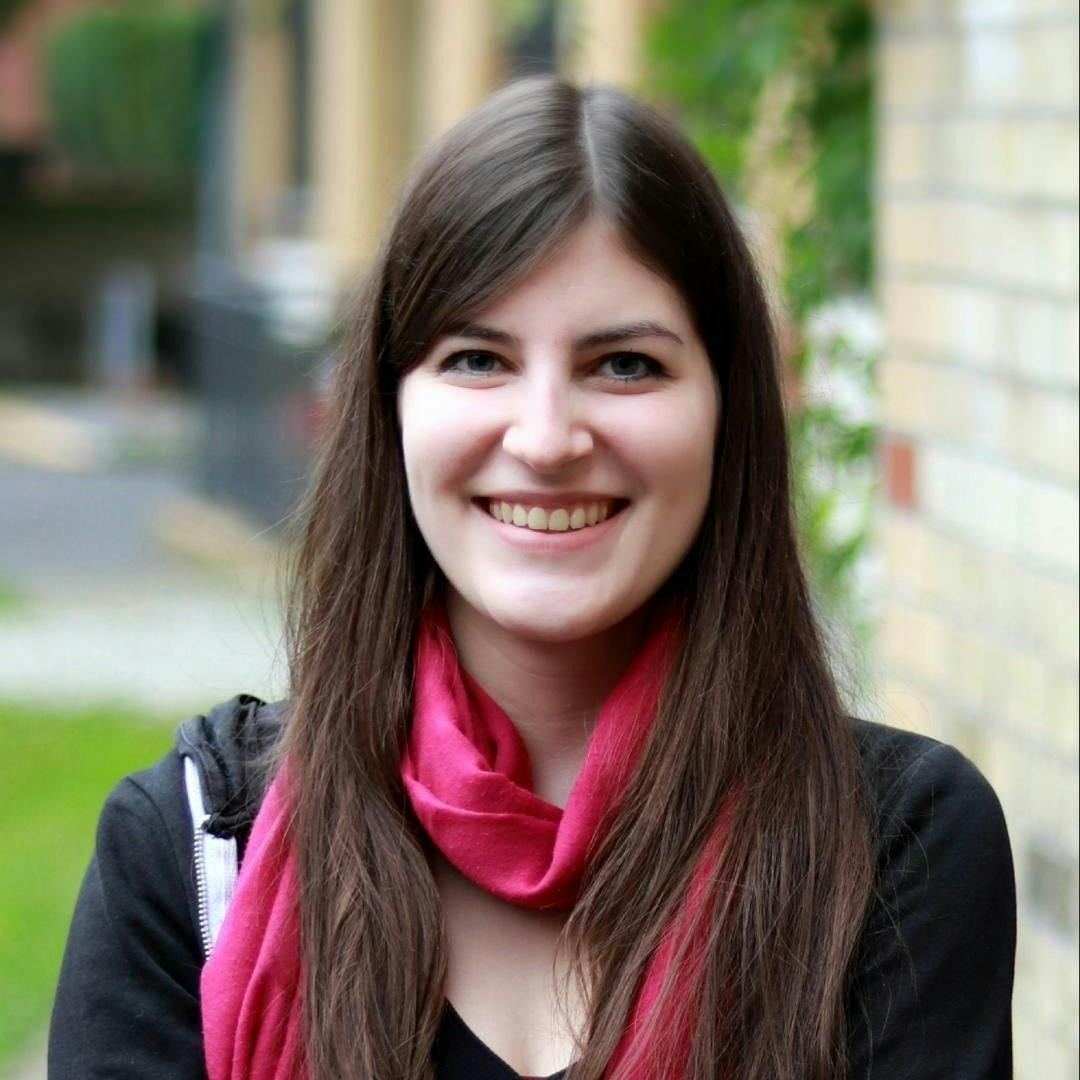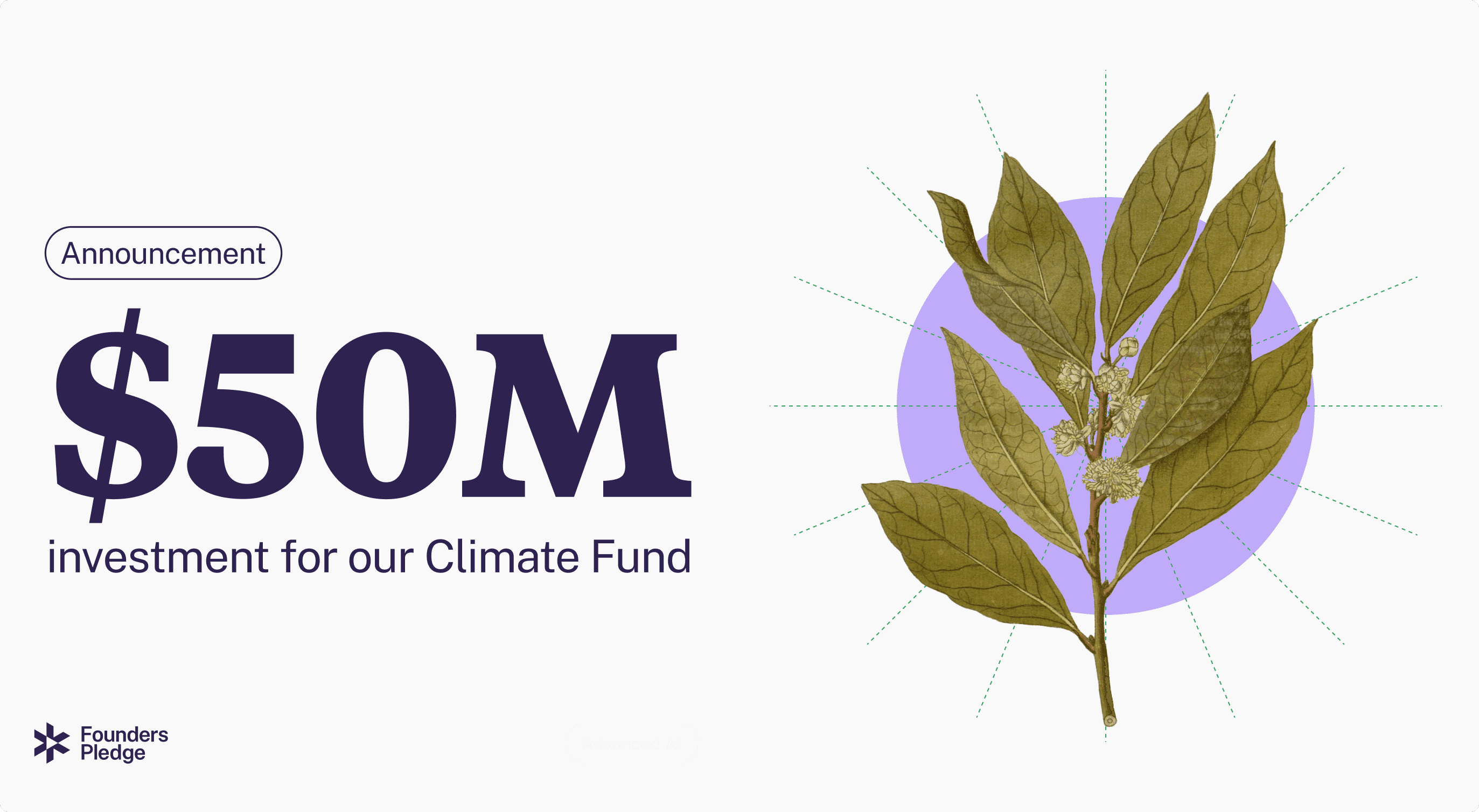

Reuse to reduce
Climate innovators are developing plans to transition existing infrastructure to produce emissions-free energy.
Climate Fund
Become a high-impact climate philanthropist.
You donate. We research and analyze extensively, making grants to highly effective charities and projects. Every dollar of your donation is leveraged to achieve the greatest possible impact in the fight against climate change.
2025 Climate Fund Impact Report
In 2025, we entered a new era of climate politics. We've been preparing for this moment since 2021 by investing in robust solutions that hedge against political risks.
Last year, we doubled down on a diversified grant portfolio, designed to hold up under pressure across geographies, institutions, and political contexts.
Read the report and discover the impact that our climate research and grantmaking had in 2025.

What we do
We find and fund impactful, neglected climate solutions
Let’s improve how the world fights climate change. We make targeted philanthropic grants to build a global climate response that is more robust, diversified, and future-proof.
We fill gaps and blindspots
The mainstream climate response often overlooks and underfunds important climate solutions (see here for past examples). We analyze the funding landscape and seek out the best opportunities that are neglected by others.
We prioritize impact
We tackle climate change as the global, long-term challenge it is, focusing on solutions that change trajectories and transform systems. This requires us to confront many unknowns in the climate space. Here's how we do it.
We’re creating tools that help assess and compare opportunities to make our grantmaking more effective and efficient.
We minimize damage
Climate change is causing devastating damage around the world, and it's expected to get much, much worse. In fact, it becomes increasingly more harmful as it gets more extreme.
We plan for worst-case scenarios, aiming to reduce the biggest risks, and look for solutions that will be effective if everything goes wrong. Learn more.

▲ Photo by Casey Horner on Unsplash
Our Latest Climate Research
Fund highlights
$67,525,178
Granted to high-impact charities and projects
6,300+
Individual donors
Give to the Climate Fund
Donate directly to our Climate Fund, which identifies and supports the most effective, underfunded opportunities in climate action.
Donate to the Climate Fund

Our Latest Climate News
Paths to Impact
Climate progress requires sustained government action, but policies are vulnerable to elections and political division. We fund efforts (and are exploring opportunities around the world) to build bipartisan support, making essential climate policies more resilient, no matter who’s in office.
Some of the most promising solutions don’t get the attention or funding they need. We fund advocacy to bring these ideas into the spotlight, which can shape policy, influence spending, and shift priorities in both government and private sectors.
Infrastructure built today can commit us to emissions-intensive production for decades. We fund efforts to make new infrastructure as low-carbon as possible and look for ways to reduce future emissions from existing systems.
The world needs to decarbonize energy systems and still meet rapidly rising energy demands. We fund efforts to fast-track and deploy low-carbon technologies, such as advanced geothermal and nuclear, to meet this challenge.
Direct and co-funded grants
*Grants marked with an asterisk were not originally paid in USD; the amounts shown are converted reference values.
Supporting stronger business representation in climate policy by linking CISL and the Corporate Leaders Group to the EU Climate Innovation Hub, with a focus on industrial policy and clean technology.
Backs coal repowering advocacy in (emerging) Asia, including China, Indonesia, and South Korea.
Advancing EU Climate Innovation Hub activities through research and coordination across the Institute for Climate Economics, Climate Strategy, and Cleantech for Europe.
Advised grants
These grants have been identified, evaluated and advised on by Fund Managers; resources were deployed by external philanthropists through their giving infrastructure, separately from the Fund.
For their Superhot Rock Geothermal Energy Program.
Scaling their work and team across key innovation priorities.
Mapping the quality and depth of geothermal resources.
Meet the Climate Team

Johannes Ackva
Johannes has dedicated much of his adult life to this topic. From a teenage environmental activist to a climate policy expert advising major EU decision makers, Johannes is committed to solving the problem of global energy poverty, while simultaneously reaching net-zero emissions and protecting our planet.
Prior to joining Founder Pledge, Johannes spent five years working in a think tank advising decision makers on climate policy, and conducting academic research into the intersection between effective and feasible climate policies.

Luisa Sandkühler
Junior Researcher
Luisa joined Founders Pledge in March 2021. In her work as a Junior Researcher at Founders Pledge, she focuses on building data tools to understand crucial questions in climate philanthropy, such as estimating funding additionality and neglectedness.
She is studying physics at the Humboldt University of Berlin. Luisa has been a member of the so-called "Aktionsbündnis Klimaschutz" (Action coalition for climate protection) for several years. It is the central dialogue forum for the continuous discussion of positions on climate protection policy between civil society and the federal government. It supports the German federal government in achieving its climate protection goals. She also has been specializing in climate policy and international cooperation as a member of the campaign and editor team of the WWF Youth Germany. In her role, she led international campaigns, met with politicians and decision-makers (among others the German government, the British Delegate for the COP26 and the British Embassy), participated in international climate conferences and helped Fridays For Future to grow from its early stages

Stan Pinsent
Applied Researcher
Stan is an applied researcher specialising in Climate. Before joining Founders Pledge in 2024 he worked as a researcher at CEARCH, scouting for highly cost-effective global health interventions. Prior to that, Stan spent several years as a teacher and hosted a podcast about education. He holds a degree in Mathematics from the University of Oxford. Stan enjoys sport and everything outdoorsy. An avid chef, he loves to improvise in the kitchen, often with unpredictable results.

Hannah Yang
Research Communicator
Hannah joined Founders Pledge as the Research Communicator in September 2024. After earning a BA in Economics from Yale, she began her career as a corporate strategy consultant at McKinsey, and then pivoted into pursuing a creative career as a speculative fiction author and content writer. Her interest in the intersection of writing, data science, and real-world impact led her to her work at Founders Pledge.
In her free time, Hannah can be found painting watercolors, rock climbing, or writing novels and short stories. Her fiction has been published in Apex, Analog, Clarkesworld, and multiple Year’s Best anthologies.



